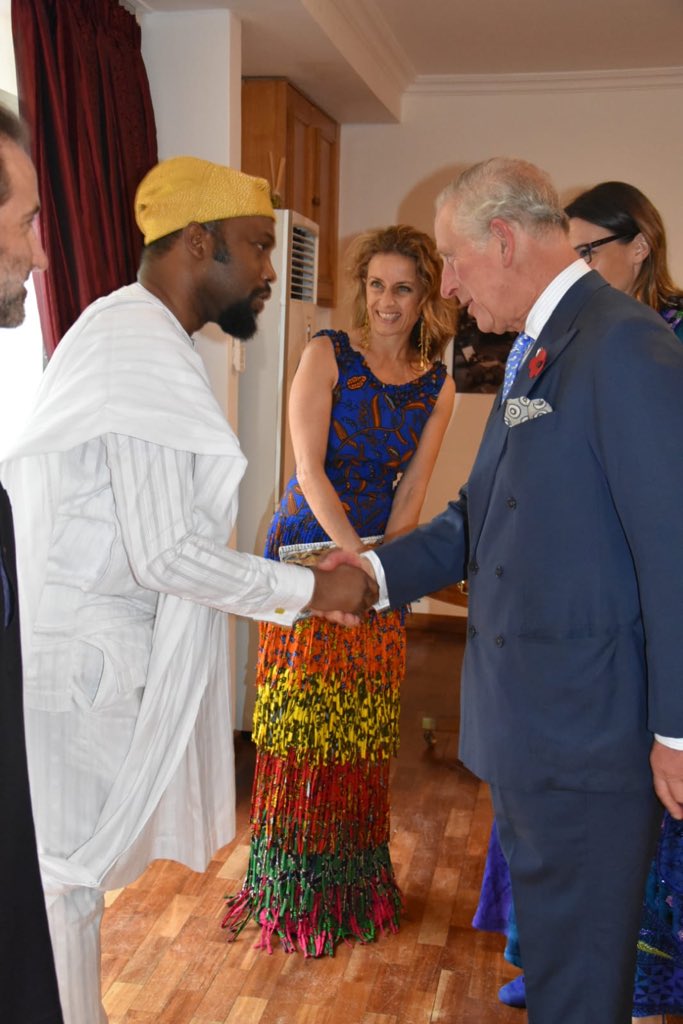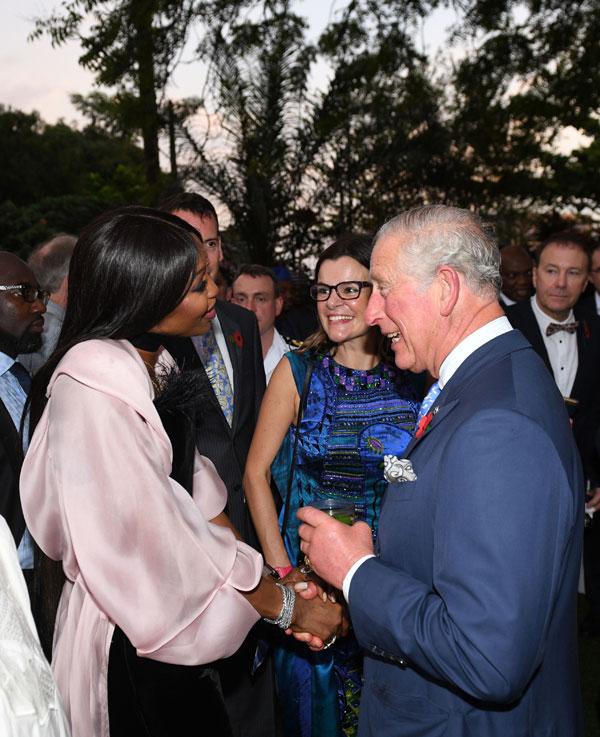By Christopher Ade-
Prince Charles stunned guests in Nigeria on his final day there when he decided to speak pigeon English to the locals. Addressing guests at a final evening reception of his West African tour, the Prince of Wales surprisingly delivered part of his speech in pidgin english.
The Prince greeted astonished guests with a cheerful “how you dey?” before telling them of his good fortune to be there: “God dun butta my bread”.(God has given me food)
Flaunting his vast array of cultural knowledge, Charles showed a wide level of versatility when he spoke in native pidgeon and yoruba. He left guests gobsmacked at his broad knowledge of Nigerian dialect.e language is a cultural force, driving everything from the lyrics of Afrobeat music to movies emerging from Nigeria’s Nollywood, now the world’s second-largest film industry. West African Pidgin began in the late 17th and 18th centuries as a simple trade language between Europeans and Africans.
The prince addressed assembled dignitaries, and celebrities including supermodel Naomi Campbell, footballer Joseph Yobo and an array of Nigerian television and social media stars in attendance. He said: “my friends, you do well!, he signaled that he would soon leave before he outstayed his welcome with the words: “If person too tey for party, e go follow dem wash plate!”Its interpretation is that if someone overstays their welcome at a party they will follow him to see if he wants to wash the plates
On Wednesday, Nigerian and British authors who are part of Abuja Literary Society had flaunted their literary skills before Charles and the Dutchess of York by reading out some of their work to The Duchess and guests. The Society is a highly regarded group comprising many well-known literary minds, including published authors like Chinere Obo Obasi, Denja Abdullahi, Theresa Ameh as well as amateur and budding writers.
His Royal Highness had met young entrepreneurs on Wednesday from the worlds of digital, music, film, fashion and social entrepreneurship at the British Council Festival before attending a reception for The Prince’s Trust International. His presence in the country had an impact on the people. He had a great time in Nigeria, and gave everybody he encountered something to remember.
 @ClarenceHouse
@ClarenceHouse
The Prince attended a reception at the British Residence in Lagos.
Addressing the people of Lagos, the prince said: “Una people. Na fine Lagos people. I hail you! (Wonderful people of Lagos)”, he added: “I am so glad to be able to join all of you this evening and to be back here in Las Gidi (Lagos) If I may say so, it is particularly special to be here, just a few days before my 70th birthday, in the land of the Owambe [‘big parties’ in Yoroba].
“I find it hard to believe that nearly thirty years have passed since I first came to this city and having finally made it back here, Ladies and Gentlemen, all I can say is that “God don butta my bread!”
TIES
Prince Charles echoed the words of British prime minister Theresa May who visited Nigeria not so long ago, when he spoke of the ties between Britain and Nigeria. He announced plans to bring projects supported by the Prince’s Trust International to help entrepreneurs.
“Your Excellencies, Ladies and Gentlemen,” he continued. “Sadly, my time in Lagos, and indeed in Nigeria and West Africa on this Tour, is fast coming to an end, and soon I must take my leave from you all.
“As I am sure you will all agree, “If person too tey for party, e go follow dem wash plate.”
“I will take with me, however, so many special memories of Nigeria, and of Lagos, and of your essential place within our Commonwealth Family.
“ I need hardly say that I hope, very much, that I might return before too long. In the meantime I shall remember, with such fondness, the warmth of the welcome that I have received here and, in particular, the remarkable vibrancy and energy of this extraordinary city.
On his final day in Nigeria, he paid his respects at the Commonwealth War Graves Commission Memorial in Abuja, laying a wreath and hearing both Christian and Islamic prayers for those who died in the First and Second World Wars. Later, he watched chickens being vaccinated, and saw a new machine designed to acha, a cereal crop tipped by some to be the “next quinoa”.




